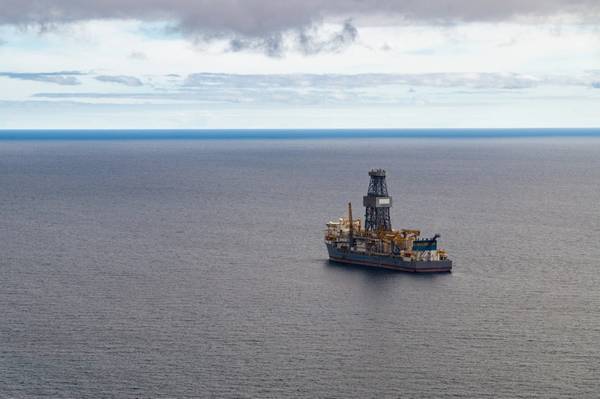
The Biden administration needs until the end of this year to finalize a long-awaited five-year plan for offshore oil and gas development in federal waters, according to court documents filed this week.
The U.S. has been without a congressionally-mandated five year schedule of offshore oil and gas auctions since the previous one expired in June 2022.
The process is being closely watched by the oil and gas industry, which has pressed for more leasing to boost domestic fuel supplies, and by environmentalists, who say drilling conflicts with President Joe Biden's promise to fight climate change.
In a proposal unveiled in July, the Interior Department said the next plan would have anywhere from zero to 11 lease sales, but it did not commit to a timeline for completing the process.
Since then, Biden signed into law the Inflation Reduction Act, which contains billions in subsidies aimed at fighting climate change but makes permitting of offshore wind facilities in federal waters contingent on Interior offering acreage on the Outer Continental Shelf to drillers.
Interior will take until December to finish "all necessary analyses, approvals, and mandatory procedural steps" related to the plan, it said in a filing on Monday with the U.S. Court of Appeals for the District of Columbia.
The agency, which oversees federal lands and waters, is defending itself in a lawsuit filed by the oil and gas trade group American Petroleum Institute alleging the agency broke the law by failing to finalize an offshore drilling plan.
Before the end of this year, Interior said it must review and respond to 760,000 public comments on its proposed plan and conduct analyses on greenhouse gas emissions, leasing benefits and air quality, among others.
The proposed final program is expected to be completed in September and approved in December following a 60-day waiting period.
Senator Joe Manchin, a Democrat who supports development of fossil fuels on federal lands and waters, in a statement on Wednesday criticized the timeline, saying the administration was "putting their radical climate agenda ahead of our nation's energy security."
An offshore oil and gas group, the National Ocean Industries Association (NOIA), issued a statement saying the delay was "injecting substantial and unnecessary uncertainty into the investment outlook for U.S. energy." Interior officials had no comment.
(Reuters - Reporting by Nichola Groom; Editing by Leslie Adler and Daniel Wallis)